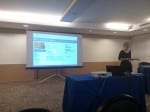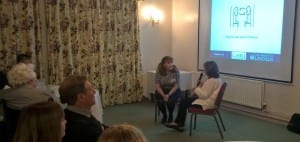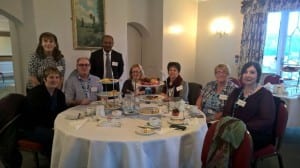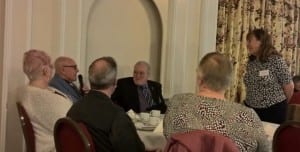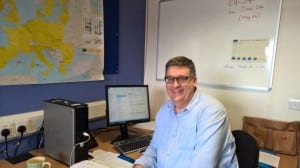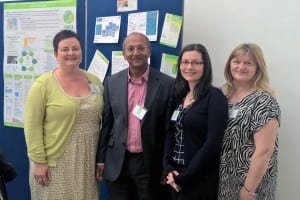 Members of the Scaling up PINCER project team (PINCER is a pharmacist-led information technology intervention for reducing clinically important errors in medication management in general practice), Prof Niro Siriwardena, Janice Wiseman, Dr Sarah Rodgers, Chris Rye and Despina Laparidou, recently attended (on June 29th) the Scaling-Up Improvement Programme Mid-point Event in London. The event was organised by the Health Foundation, the main funder for the six participating projects. The focus of the meeting was on evaluation and sustainability of improvement.
Members of the Scaling up PINCER project team (PINCER is a pharmacist-led information technology intervention for reducing clinically important errors in medication management in general practice), Prof Niro Siriwardena, Janice Wiseman, Dr Sarah Rodgers, Chris Rye and Despina Laparidou, recently attended (on June 29th) the Scaling-Up Improvement Programme Mid-point Event in London. The event was organised by the Health Foundation, the main funder for the six participating projects. The focus of the meeting was on evaluation and sustainability of improvement.
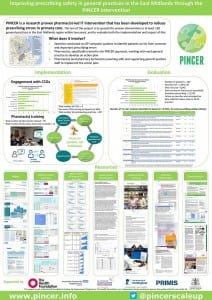 The day was designed to be as interactive as possible and teams were asked to bring materials with them, such as information, pictures, posters, leaflets, data, etc., to put up on a pin board, with the purpose of giving a visual story of their project for other teams to view during and between sessions. This created a wonderful opportunity for teams to learn about each other’s projects and discuss issues (such as successes and challenges) around their progress.
The day was designed to be as interactive as possible and teams were asked to bring materials with them, such as information, pictures, posters, leaflets, data, etc., to put up on a pin board, with the purpose of giving a visual story of their project for other teams to view during and between sessions. This created a wonderful opportunity for teams to learn about each other’s projects and discuss issues (such as successes and challenges) around their progress.
A number of interesting talks were presented around evaluating and sustaining scaling-up improvements, such as the sessions facilitated by Tom Ling/Bryn Garrod (RAND Europe) and Kathy Elliott (NCAT) respectively. One of the most stimulating and thought-provoking sessions, “Influencing for sustainability”, asked delegates to split into two large groups and have one person from each project team ‘make a case’ for their project, facilitated by Carl Smith (Frontline) and Jamie Ripman (Practive). At the end of each brief presentation, the rest of the delegates provided feedback on their performance and suggestions on how to improve their style and adjust the context of the presentation to better fit the target audience’s agenda.
At the end of the day, Sally Williams (Frontline) and Valentina Karas (the Health Foundation) brought the event to its close by reflecting on the day and discussing future actions.
By Despina Laparidou






